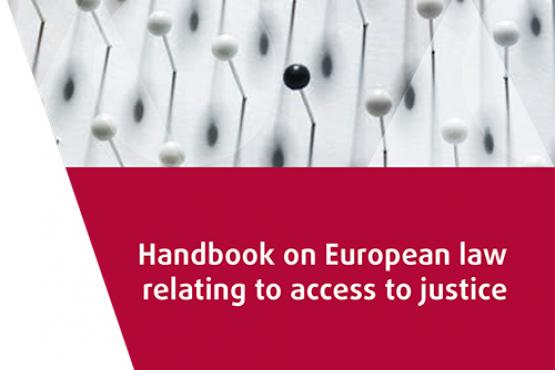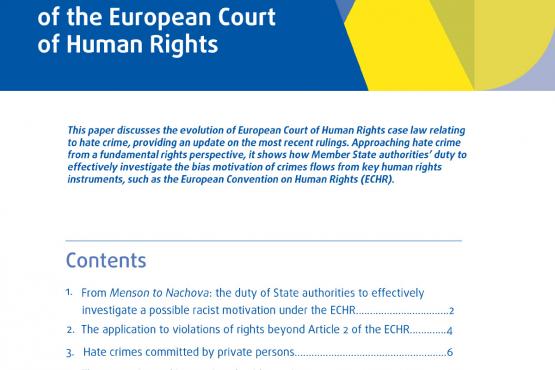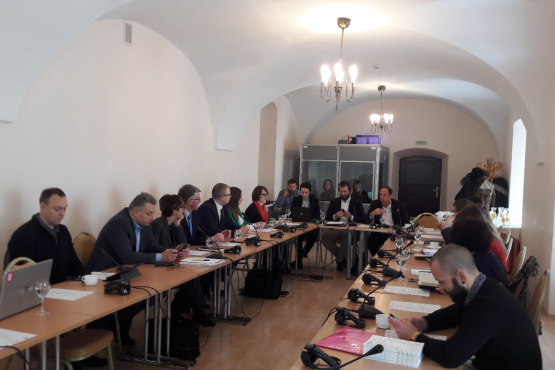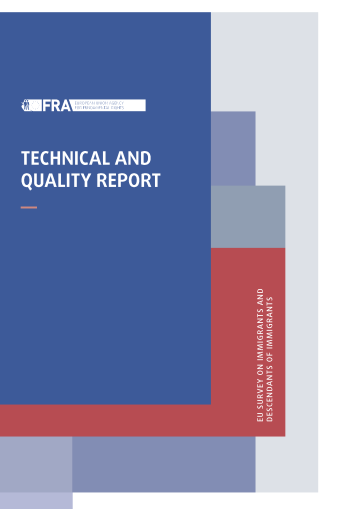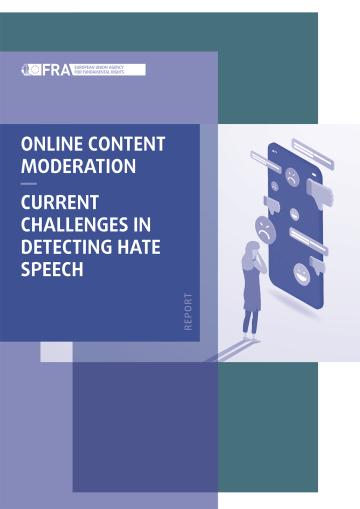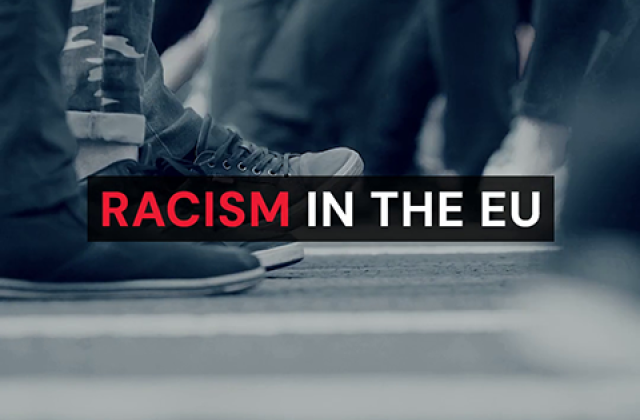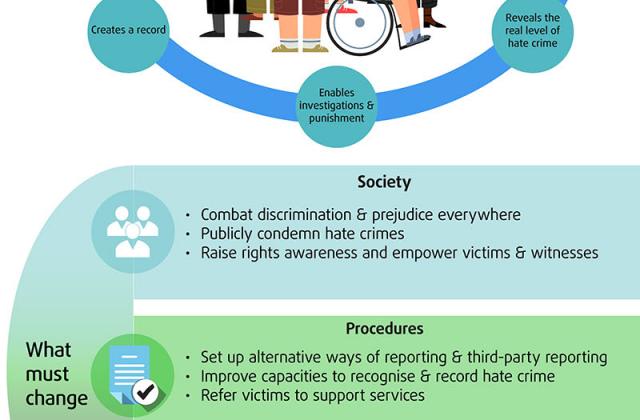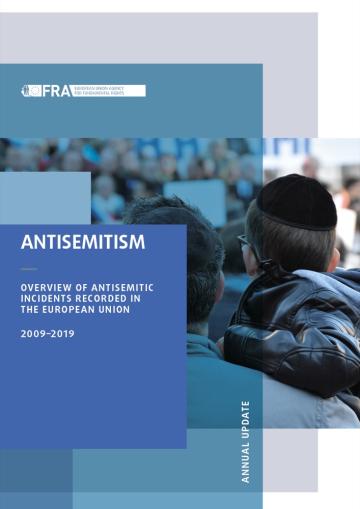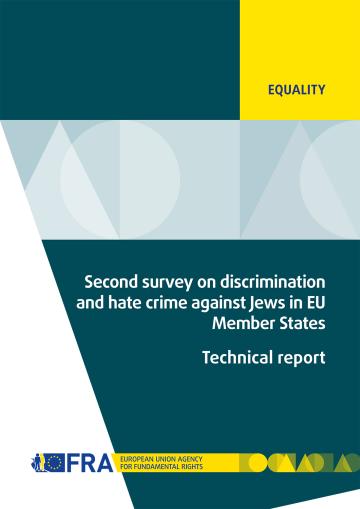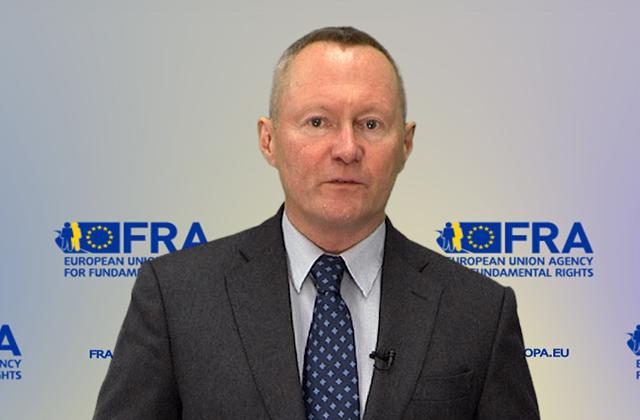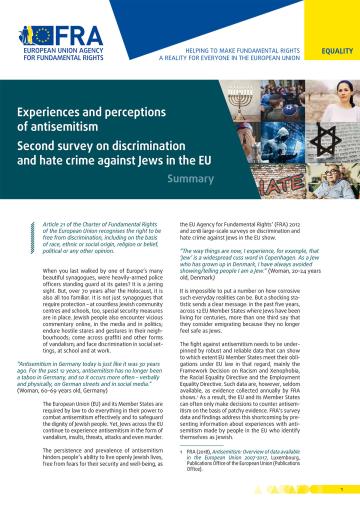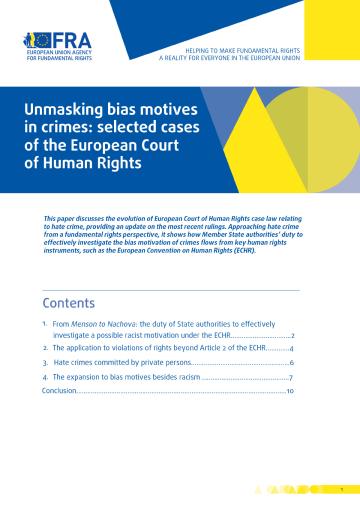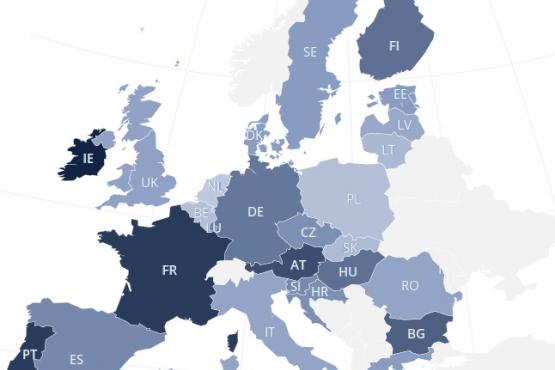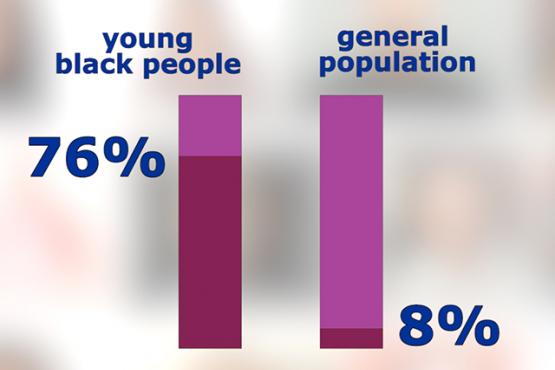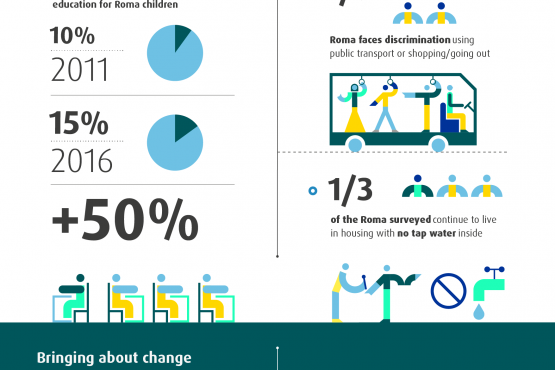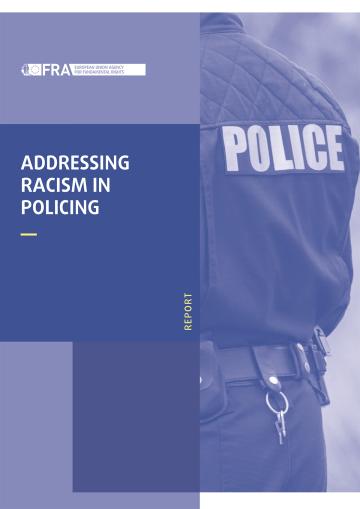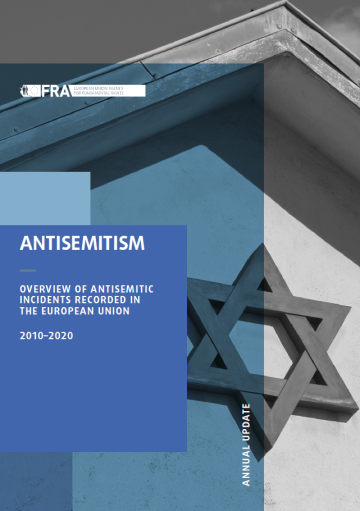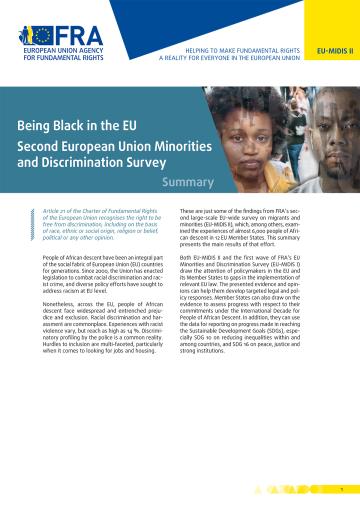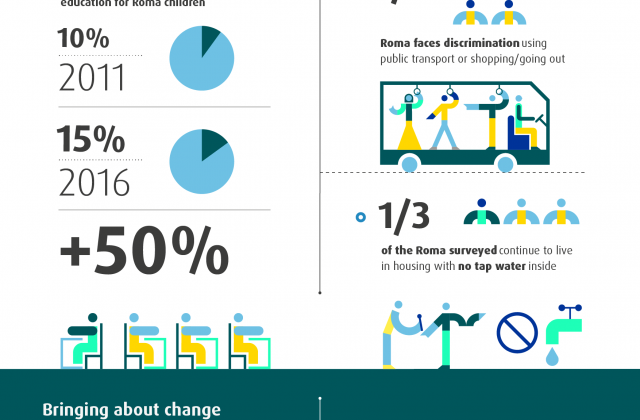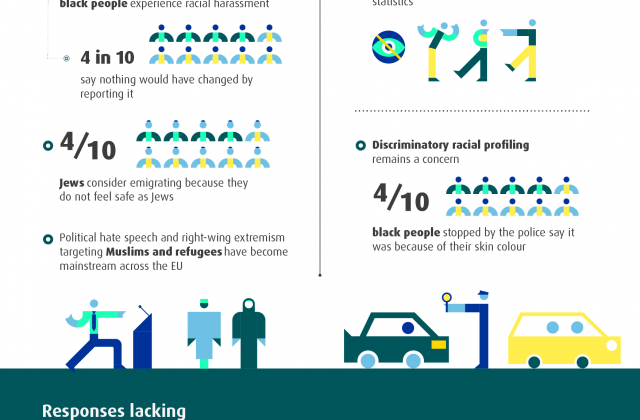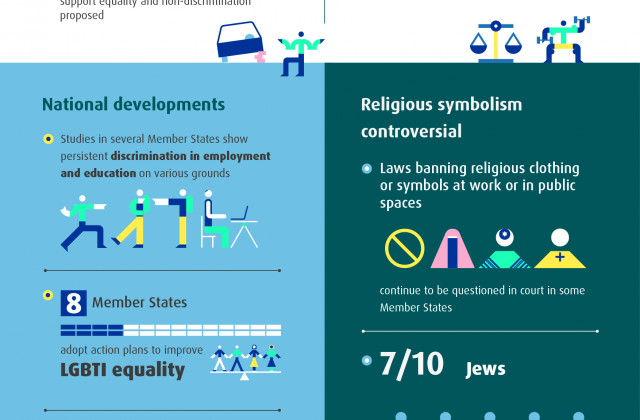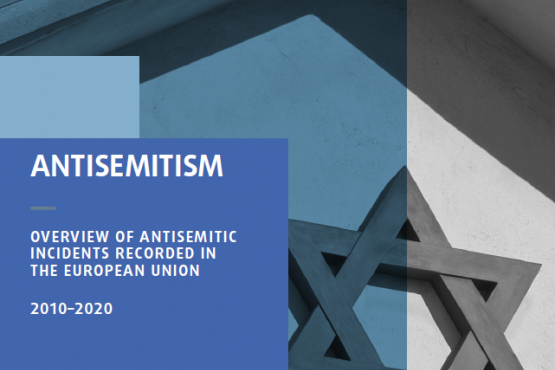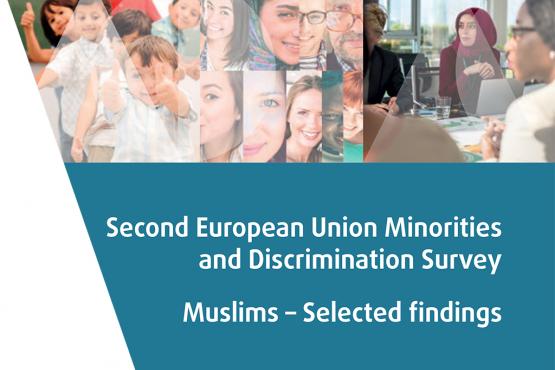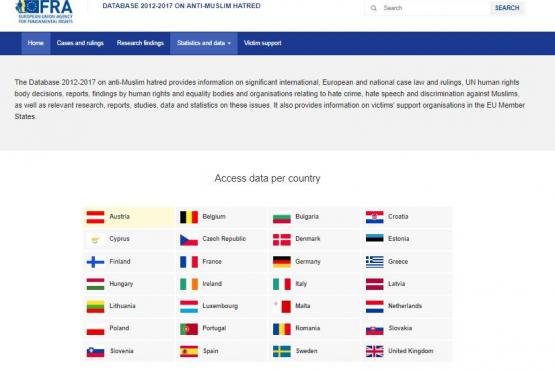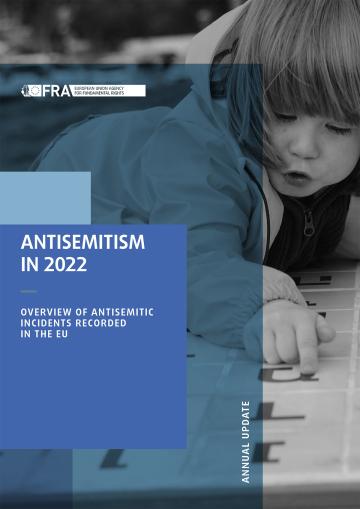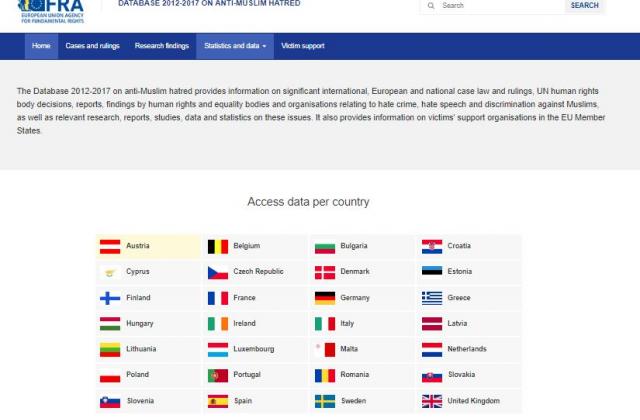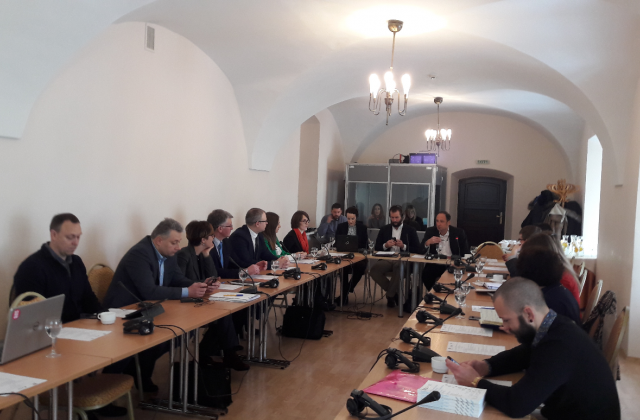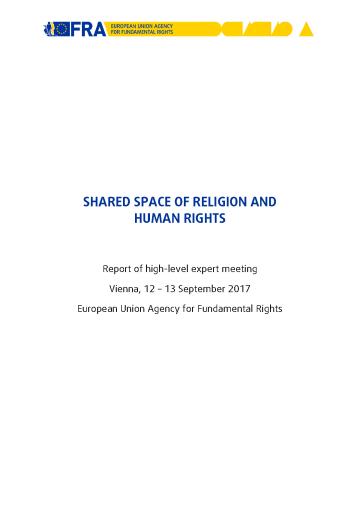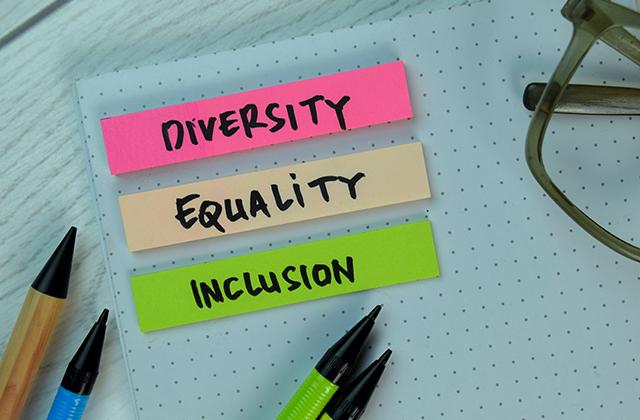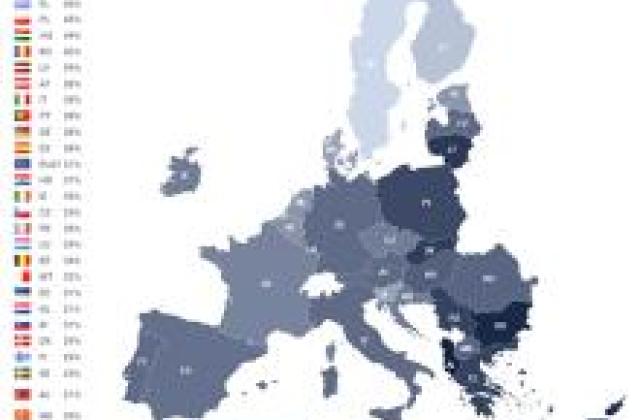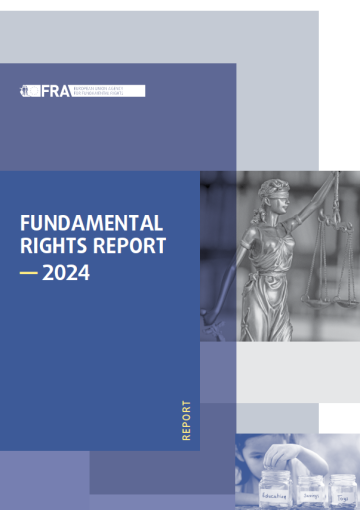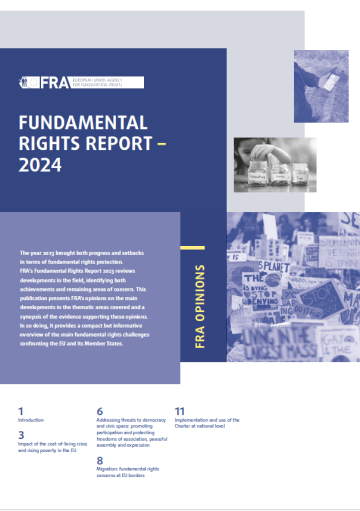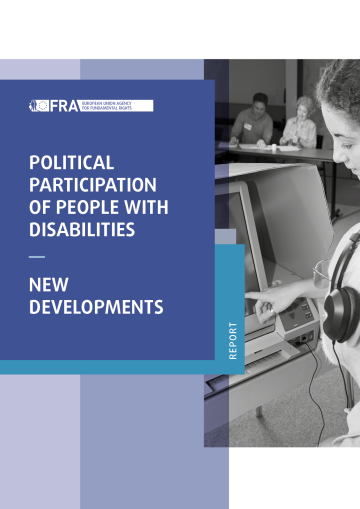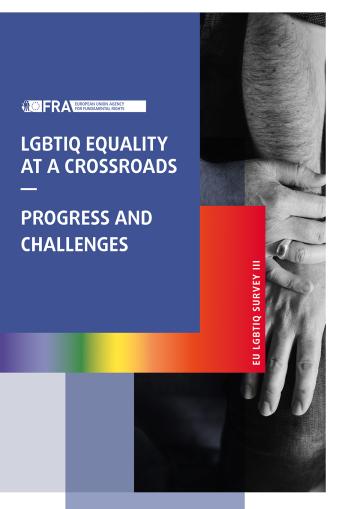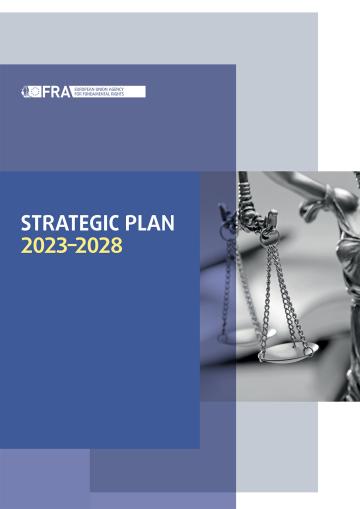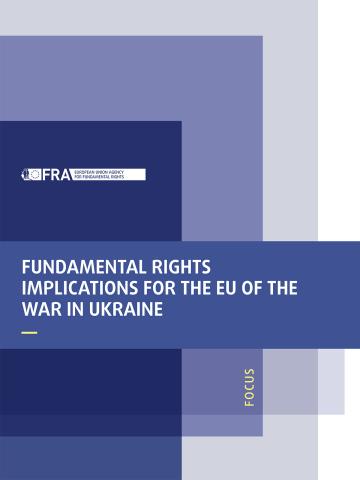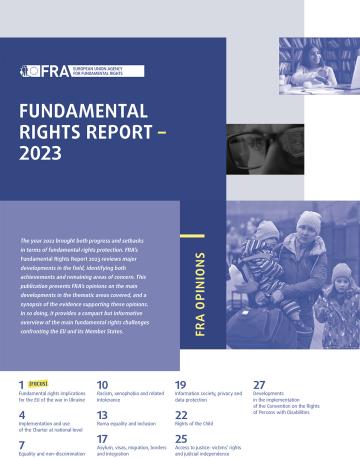(FRA) Les musulmans en Europe sont de plus en plus confrontés au racisme et à la discrimination
Date of article: 23/10/2024
Daily News of: 28/10/2024
Country:  EUROPE
EUROPE
Author:
Français
Communiqués de presse
0
Secondary theme
Crimes de haine
Highlights
- Report / Paper / Summary18novembre2021This report examines the EU’s main criminal law instrument in the field of counter-terrorism, Directive (EU) 2017/541. Specifically, it considers how the directive engages issues of fundamental rights, affecting individuals, groups and society as a whole.
- Report / Paper / Summary11octobre2021This report proposes a framework for becoming, and functioning as, a ‘human rights city’ in the EU. It includes ‘foundations’, ‘structures’ and ‘tools’ for mayors, local administrations and grassroots organisations to reinforce fundamental rights locally. It is based on existing good practice and expert input by representatives of human rights cities in the EU, academic experts, international organisations and city networks.
- Handbook / Guide / Manual22juin2016L’accès à la justice est un élément important de l’État de droit. Il permet aux individus de se protéger
contre toute atteinte à leurs droits, d’introduire des recours contre les fautes civiles, de demander au
pouvoir exécutif de rendre des comptes et de se défendre dans les procédures pénales. Ce manuel
résume les grands principes juridiques européens en matière d’accès à la justice, en s’intéressant
plus particulièrement au droit civil et au droit pénal. - PageThe Criminal Detention Database 2015-2022 combines in one place information on detention conditions in all 27 EU Member States as well as the United Kingdom.
Highlights
- Report / Paper / Summary12décembre2018This paper discusses the evolution of European Court of Human Rights case law relating
to hate crime, providing an update on the most recent rulings. Approaching hate crime
from a fundamental rights perspective, it shows how Member State authorities’ duty to
effectively investigate the bias motivation of crimes flows from key human rights
instruments, such as the European Convention on Human Rights. - Report / Paper / Summary7juillet2021This report examines why victims do not report bias-motivated incidents and the barriers that they face when reporting incidents through national crime reporting systems. By mapping existing practices that have a bearing on the victim’s experiences when reporting bias-motivated violence and harassment, it aims to provide evidence to support national efforts to encourage and facilitate reporting – and ultimately assist Member States in delivering on their duties with regard to combating hate crime.
- Report / Paper / Summary21juin2018Across the European Union, people face hatred because of their skin colour, ethnicity, religion, gender or sexuality. In response, the EU and its Member States have introduced laws against hate crime and support services for victims. But these will only fulfil their potential if victims report hate-motivated harassment and violence to the police, and if police officers record such incidents as hate crimes. This report provides rich and detailed information on hate crime recording and data collection systems across the EU, including any systemic cooperation with civil society.
- PageThe EU's Agency for Fundamental Rights (FRA) and the OSCE Office for Democratic Institutions and Human Rights (ODIHR) work together to help states improve their ability to record and collect hate crime data through national workshops.
Produits
Multimedia
News
Events
Origine raciale et ethnique
Highlights
- Report / Paper / Summary18novembre2021This report examines the EU’s main criminal law instrument in the field of counter-terrorism, Directive (EU) 2017/541. Specifically, it considers how the directive engages issues of fundamental rights, affecting individuals, groups and society as a whole.
- Report / Paper / Summary11octobre2021This report proposes a framework for becoming, and functioning as, a ‘human rights city’ in the EU. It includes ‘foundations’, ‘structures’ and ‘tools’ for mayors, local administrations and grassroots organisations to reinforce fundamental rights locally. It is based on existing good practice and expert input by representatives of human rights cities in the EU, academic experts, international organisations and city networks.
- Handbook / Guide / Manual22juin2016L’accès à la justice est un élément important de l’État de droit. Il permet aux individus de se protéger
contre toute atteinte à leurs droits, d’introduire des recours contre les fautes civiles, de demander au
pouvoir exécutif de rendre des comptes et de se défendre dans les procédures pénales. Ce manuel
résume les grands principes juridiques européens en matière d’accès à la justice, en s’intéressant
plus particulièrement au droit civil et au droit pénal. - PageThe Criminal Detention Database 2015-2022 combines in one place information on detention conditions in all 27 EU Member States as well as the United Kingdom.
Highlights
- Report / Paper / Summary25mai2021This paper presents statistical survey data for the EU on how often people are stopped by the police, in what kind of situations they are stopped, the action taken by the police during stops, and views on whether or not the police acted respectfully.
- Explorateur de données04 December 2017This survey involved interviews with 25,515 people with different ethnic minority and immigrant backgrounds across 28 EU countries. It explores issues concerning discrimination as well as experiences of harassment, hate-motivated violence and discriminatory profiling.
- VidéoBlack people in the EU face unacceptable difficulties in getting a decent job because of their skin colour. Racist harassment also remains all too common.
- InfographieFundamental Rights Report 2019: Anti-Gypsyism across the EU remains a persistent barrier to improving the social and
economic situation of Roma today.
Produits
Multimedia
News
Events
Religion et convictions
Highlights
- Report / Paper / Summary18novembre2021This report examines the EU’s main criminal law instrument in the field of counter-terrorism, Directive (EU) 2017/541. Specifically, it considers how the directive engages issues of fundamental rights, affecting individuals, groups and society as a whole.
- Report / Paper / Summary11octobre2021This report proposes a framework for becoming, and functioning as, a ‘human rights city’ in the EU. It includes ‘foundations’, ‘structures’ and ‘tools’ for mayors, local administrations and grassroots organisations to reinforce fundamental rights locally. It is based on existing good practice and expert input by representatives of human rights cities in the EU, academic experts, international organisations and city networks.
- Handbook / Guide / Manual22juin2016L’accès à la justice est un élément important de l’État de droit. Il permet aux individus de se protéger
contre toute atteinte à leurs droits, d’introduire des recours contre les fautes civiles, de demander au
pouvoir exécutif de rendre des comptes et de se défendre dans les procédures pénales. Ce manuel
résume les grands principes juridiques européens en matière d’accès à la justice, en s’intéressant
plus particulièrement au droit civil et au droit pénal. - PageThe Criminal Detention Database 2015-2022 combines in one place information on detention conditions in all 27 EU Member States as well as the United Kingdom.
Highlights
- Report / Paper / Summary9novembre2021Antisemitic incidents and hate crimes violate fundamental rights, especially the right to human dignity, the right to equality of treatment, and the freedom of thought, conscience and religion. This report provides an overview of available data on antisemitism as recorded by official and unofficial sources in the EU Member States as well as Albania, North Macedonia and Serbia. The data provided by the countries are supplemented with information from international organisations.
- Report / Paper / Summary10décembre2018This report outlines the main findings of FRA’s second survey on Jewish people’s experiences with hate crime, discrimination and antisemitism in the European Union – the biggest survey of Jewish people ever conducted worldwide. Covering 12 EU Member States, the survey reached almost 16,500 individuals who identify as being Jewish. It follows up on the agency’s first survey, conducted in seven countries in 2012.
- Rapport / Publication / Résumé21septembre2017Les musulmans qui vivent dans l’Union européenne sont confrontés à la discrimination dans de nombreuses circonstances, en particulier lorsqu’ils cherchent un emploi, qu’ils travaillent ou qu’ils essaient d’accéder à des services publics ou privés. Ce rapport examine la manière dont des caractéristiques telles que le prénom et le nom d’une personne, la couleur de la peau et le fait de porter des symboles religieux visibles (le foulard par exemple) peuvent déclencher un comportement discriminatoire ou de harcèlement.
- PageThe Database 2012-2020 on anti-Muslim hatred provides information on significant international, European and national case law and rulings, UN human rights body decisions, reports, findings by human rights and equality bodies and organisations relating to hate crime, hate speech and discrimination against Muslims, as well as relevant research, reports, studies, data and statistics on these issues. It also provides information on victims' support organisations in the EU Member States.
Produits
Multimedia
News
Events
Primary theme
Égalité, non-discrimination et racisme
Highlights
- Report / Paper / Summary18novembre2021This report examines the EU’s main criminal law instrument in the field of counter-terrorism, Directive (EU) 2017/541. Specifically, it considers how the directive engages issues of fundamental rights, affecting individuals, groups and society as a whole.
- Report / Paper / Summary11octobre2021This report proposes a framework for becoming, and functioning as, a ‘human rights city’ in the EU. It includes ‘foundations’, ‘structures’ and ‘tools’ for mayors, local administrations and grassroots organisations to reinforce fundamental rights locally. It is based on existing good practice and expert input by representatives of human rights cities in the EU, academic experts, international organisations and city networks.
- Handbook / Guide / Manual22juin2016L’accès à la justice est un élément important de l’État de droit. Il permet aux individus de se protéger
contre toute atteinte à leurs droits, d’introduire des recours contre les fautes civiles, de demander au
pouvoir exécutif de rendre des comptes et de se défendre dans les procédures pénales. Ce manuel
résume les grands principes juridiques européens en matière d’accès à la justice, en s’intéressant
plus particulièrement au droit civil et au droit pénal. - PageThe Criminal Detention Database 2015-2022 combines in one place information on detention conditions in all 27 EU Member States as well as the United Kingdom.
Highlights
- Periodic updates / Series16juin2021This Coronavirus Bulletin focuses on equitable access to vaccines. It outlines the situation in the 27 EU Member States from 1 March to 30 April 2021. The bulletin looks at two main areas: planning and prioritisation in deploying Covid-19 vaccinations and their rollout in the countries. It covers information and communication campaigns, as well as (pre)registration channels for and the administration of vaccinations.
- Opinion30avril2021This opinion illustrates the extent and nature of lived experiences of inequality and discrimination across the EU. It does so with reference to the grounds of discrimination and areas of life covered by the racial and employment equality directives, as well as in relation to the grounds and areas covered by the proposed Equal Treatment Directive.
- Report / Paper / Summary28novembre2018Almost twenty years after adoption of EU laws forbidding discrimination, people of African descent in the EU face widespread and entrenched prejudice and exclusion. This report outlines selected results from FRA's second large-scale EU-wide survey on migrants and minorities (EU-MIDIS II) carried out in 2016. It examines the experiences of almost 6,000 people of African descent in 12 EU Member States.
- Report / Paper / Summary6décembre2017Seventeen years after adoption of EU laws that forbid discrimination, immigrants, descendants of immigrants, and minority ethnic groups continue to face widespread discrimination across the EU and in all areas of life – most often when seeking employment. For many, discrimination is a recurring experience. This is just one of the findings of FRA’s second European Union Minorities and Discrimination Survey (EU-MIDIS II), which collected information from over 25,500 respondents with different ethnic minority and immigrant backgrounds across all 28 EU Member States.
Produits
Multimedia
News
Events
Résumé
Dans l’Union européenne, un musulman sur deux est confronté au racisme et à la discrimination dans sa vie quotidienne, une proportion en forte augmentation depuis 2016. Les femmes, les hommes et les enfants musulmans sont ciblés non seulement en raison de leur religion, mais aussi en raison de leur couleur de peau et de leur origine ethnique ou immigrée. Les jeunes musulmans nés dans l’UE et les femmes portant des vêtements religieux sont particulièrement touchés. Telles sont quelques-unes des conclusions du dernier rapport de l’Agence des droits fondamentaux de l’Union européenne (FRA).
See also
Published At
2024-10-21T18:17:29
Show in News list
Oui
Image
Image

Téléchargements
Archive
Non




